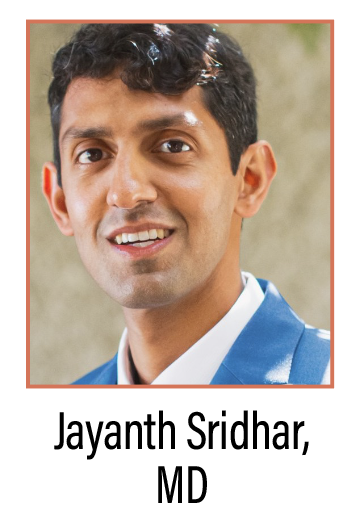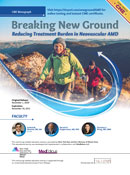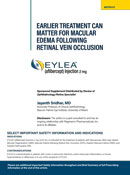 |
|
Bio Dr. Sridhar serves as Retina Specialist Magazine’s Social Media Ambassador. He’s an associate professor of clinical ophthalmology at Bascom Palmer Eye Institute, Miami. DISCLOSURE: Dr. Sridhar is a consultant to Alcon, DORC, Genentech/Roche and |
Dated cultural reference incoming. In Sam Raimi’s 2004 blockbuster film, Spider-Man 2, Dr. Otto Octavius (played to perfection by Alfred Molina) uses an amazing technology in the form of robotic arms that make him more productive and efficient.
Unfortunately, the control chip for the arms sustains damage, and the technology takes charge, influencing Dr. Octavius’ thoughts and corrupting his brain for nefarious design. Thus is born the villain, Dr. Octopus.
Similar to those robotic appendages, social media applications allow us to learn, communicate and disseminate information faster than ever before.
Still, as intelligent as humans are, we’re ultimately animals with brain neurochemistry that dictates our mood and behaviors. The digital age has accelerated the dopamine boosts we gain from interacting with media and other people. Ultimately, our brains can be rewired to our detriment if we’re not cautious and intentional with our social media usage.
Social media addiction: it’s a thing
According to the Addiction Center, psychologists estimate that up to 10 percent of Americans today meet the criteria for social media addiction, defined as impairment in important life areas due to over-concern with social media, uncontrollable urges to check social media and excess time dedicated to social media usage.1
We’re all vulnerable to it. More than once a day I find myself on Twitter or LinkedIn mindlessly scrolling and wondering how I got there. Excess digital engagement can make us irritable, alter our sleep patterns, and alienate our surrounding loved ones.
Should we run from the technology then? I believe the answer lies in embracing the technology but focusing on intentional and purposeful uses of social media.
It also depends on accepting our own limitations and accepting that this isn’t simply a question of willpower, but a matter of avoiding scenarios where our curious human brain gets trapped in the digital information treasure troves.
In the movie, Dr. Octavius dramatically breaks free from the arms’ influence, barking, “You listen to ME now!” and taking control of the robots to save New York City. Congruently, we need to take ownership of our social media usage to achieve our goals, whether they include practice building, learning a cool surgical trick or academic engagement.
‘Digital detox’
Per the Addiction Center’s advice, I take “digital detox” breaks in which I don’t use any electronics in certain hours of the day. I also turn off phone notifications when I’m working on a project, exercising or spending time with loved ones. You can set notifications to still allow important people in your life to get through a “Do Not Disturb” barrier.
I’ve set a daily time limit for my social media apps and I track my usage each week to make sure I’m spending less time on them than the week before. Finally, at night I not only put up the “Do Not Disturb” setting, but I also physically keep my phone plugged in far enough away from me to avoid the temptation of checking it when I should be sleeping.
I’m not perfect. Never will be. But hopefully you can incorporate some of these tools to remain purposefully engaged and in control of your social media usage. RS
REFERENCE
1. Addiction Center. What is social media addiction? Updated April 3, 2023. Available at: https://www.addictioncenter.com/drugs/social-media-addiction. Accessed May 9, 2023.



